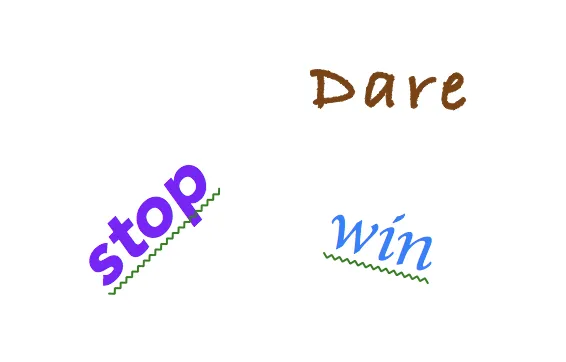BESTSELLING TITLES TO INSPIRE YOUR TITLE
Back when I was an in-house editor at Perigee Books and later, HarperCollins, I made a point of checking the bestseller lists not just to see what books were selling but to get title ideas. There are some tricks to coming up with titles that will grab people’s attention and make them stay focused long enough to read the subtitle of your nonfiction book. Here are some examples of bestselling titles to inspire your title that I pulled from a bestselling business books list:
The 7 Habits of Highly Effective People. A classic, this book uses a number in the title to help readers feel they’ll get clear, useable information that won’t overwhelm them. You’ve probably also seen titles like The 7 Spiritual Laws of Success and The 5 Love Languages. In addition to using a number in your title, you want to use positive words that inspire people. Don’t we all want to be “highly effective,” achieve success, and be adept not just at speaking the language of love but all five of them?
Dare to Lead and Girl, Stop Apologizing! Strong verbs (dare! stop!) that are calls to action help engage readers’ interest right away.
How to Win Friends and Influence People. One of my favorite classic self-help books, Dale Carnegie’s “how to” guide reminds us that the words “how to” continue to be strong in titles. On YouTube, Amazon, or a search engine, do you type in or dictate “how to” plus “cook a perfect omelet,” “write a business plan”? I’ll bet you’ve done it. You can use “how to” in your title or your subtitle. You’ll be in good company!
The Happiness Advantage, Atomic Habits, and Unlimited Memory. Intriguing promises using strong nouns and adjectives can get a potential book buyer to read further. “Habit” is a terrific noun: People love developing, changing, and adopting habits, replacing the old ones with new ones. Who doesn’t want an advantage? Intrigue your reader with a promise of what they can achieve if they read your book: new habits, advantages, not just improved memory but unlimited memory. A thesaurus can help you strengthen your nouns and adjectives, helping you create an intriguing, enticing title.
Of course, you want a title no one else is using, so here’s a trick. Turn verbs into their -ing forms: use “daring” instead of “dare,” and “stopping” instead of “stop.” You can do the opposite, too: “winning” could be turned into “win,” “discovering” can become “discover,” and so on.
What should you avoid? Negativity in a title. Sometimes, people will find a negative title appealing: Stop Being a Jerk: How You Can Be Nicer to the People in Your Life is a book many people need, but are they going to buy it? Or are they more like to to buy How to Win Friends and Influence People? I’d buy The Happiness Advantage before I’d buy The Disadvantages of Unhappiness, wouldn’t you?
Also, avoid words people are unfamiliar with and find hard to pronounce. I regret years ago agreeing to a book title called Running to Maputo. It was a marvelous, uplifting memoir by a South African activist who chronicled a year of his life recovering from being nearly killed by a car bomb. (He was on his way to do his daily run at a place called Maputo.) The concept was great—it was the tale of how a man slowed down, was fully present in the healing process, and then a year later was able to meet that simple goal he had the day he nearly died. But the word “Maputo” and the confusing title caused too many people to scratch their head. Now, you might be thinking, “Don’t people like new words?” Sometimes, yes. If the subtitle explains the word, it can be intriguing without being off-putting.

If you’re working on titles for your book, I hope you will play with these ideas and see if you can’t come up with a terrific title that’s an improvement on the one you have. The next step, of course, is to see if anyone has a book title too close to yours or if someone else has already snapped up the .com address for that combination of words. (If they have, don’t get a .net. If MyAwesomeTitle.com is taken, it would be better to own MyAwesomeTitleBook.com than MyAwesomeTitle.net)
Need some help with titling, conceptualizing, and writing your book? You might want to book a one-hour consultation call with me or some coaching sessions, and you might be ready for my Vision Plan service. Contact me and let me know where you’re stuck on your journey from an idea to a published book.

Nancy Peske is a ghostwriter, developmental editor, and book publishing consultant who has done editorial work on books including bestsellers and award-winners for over 30 years.